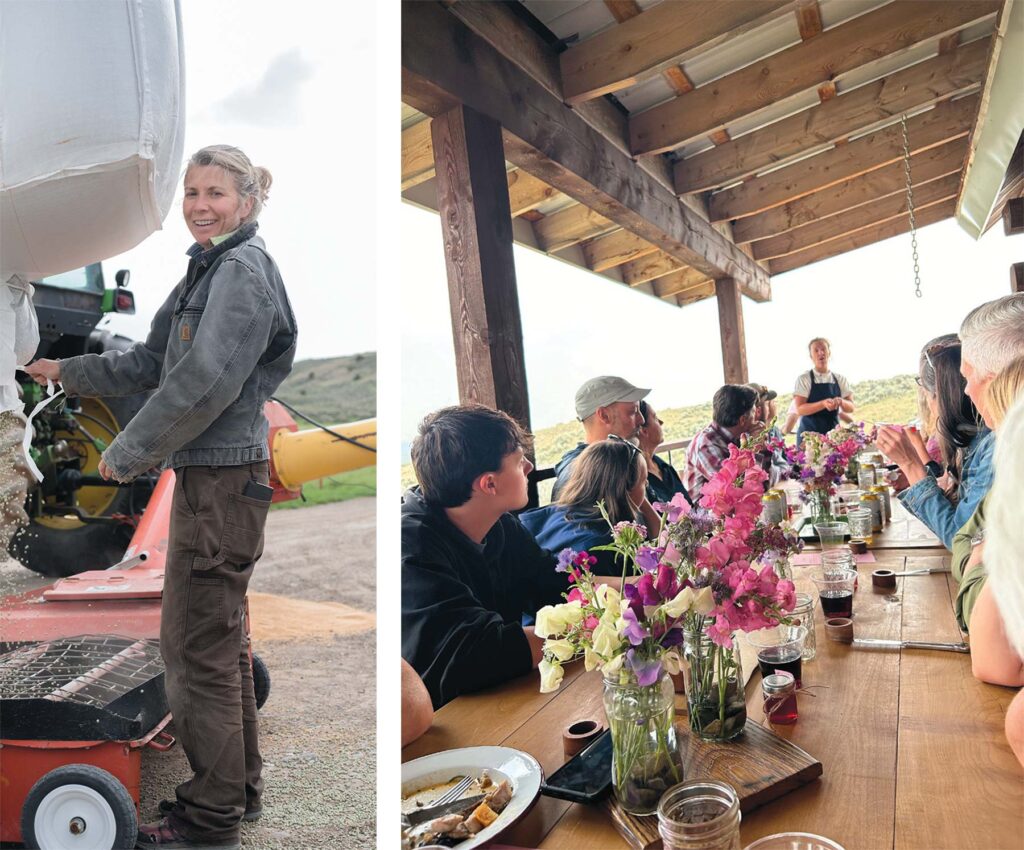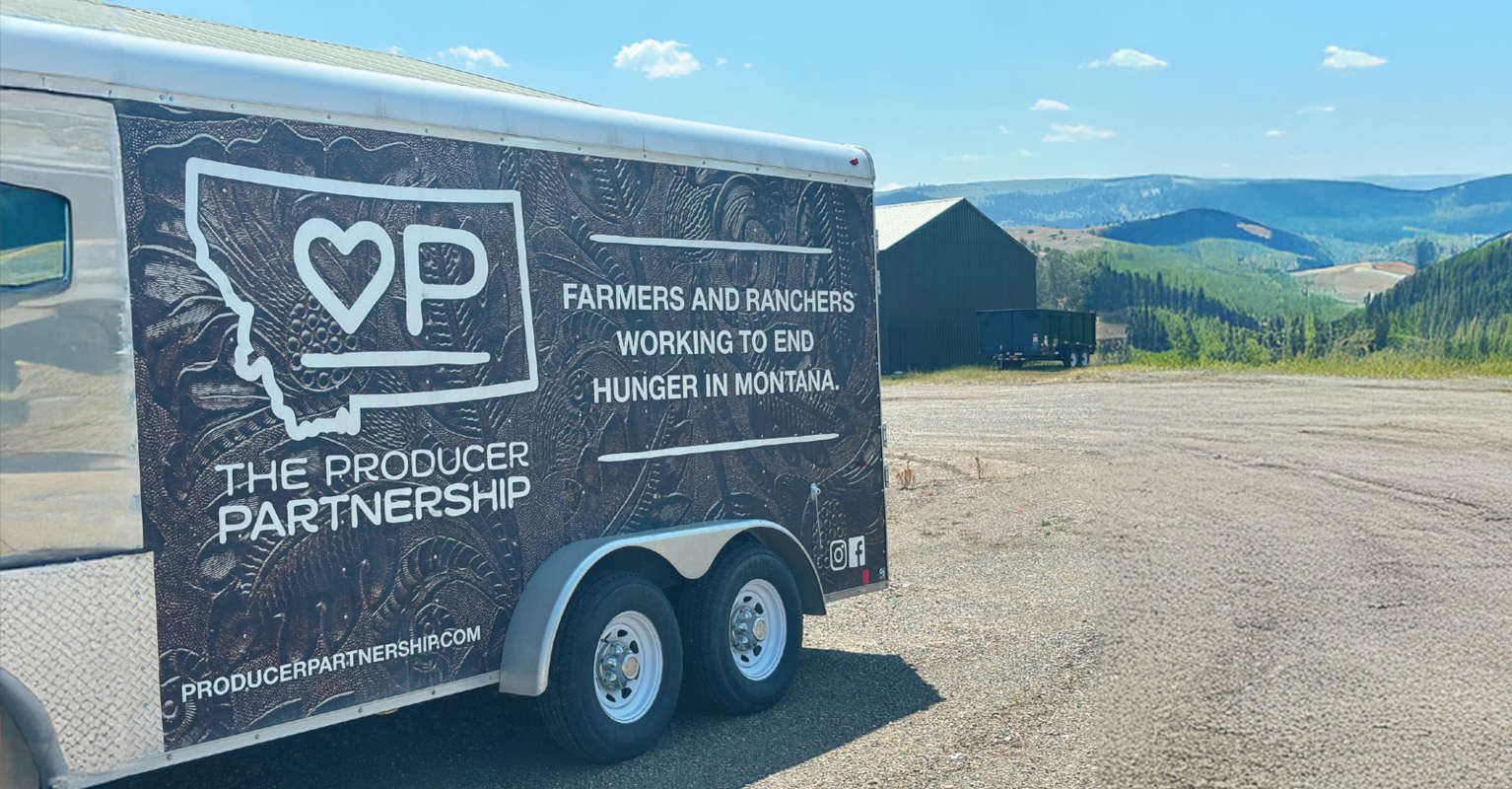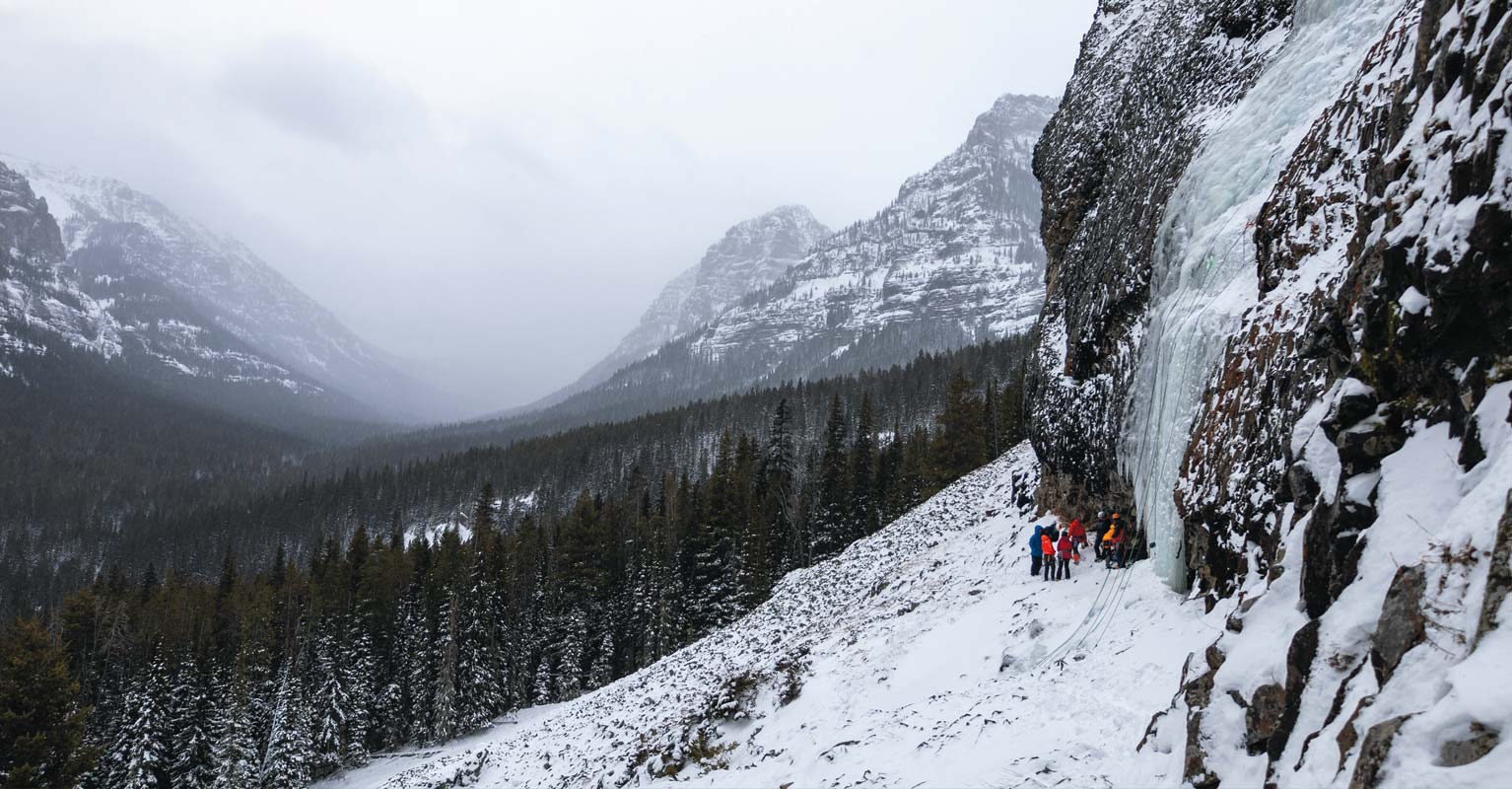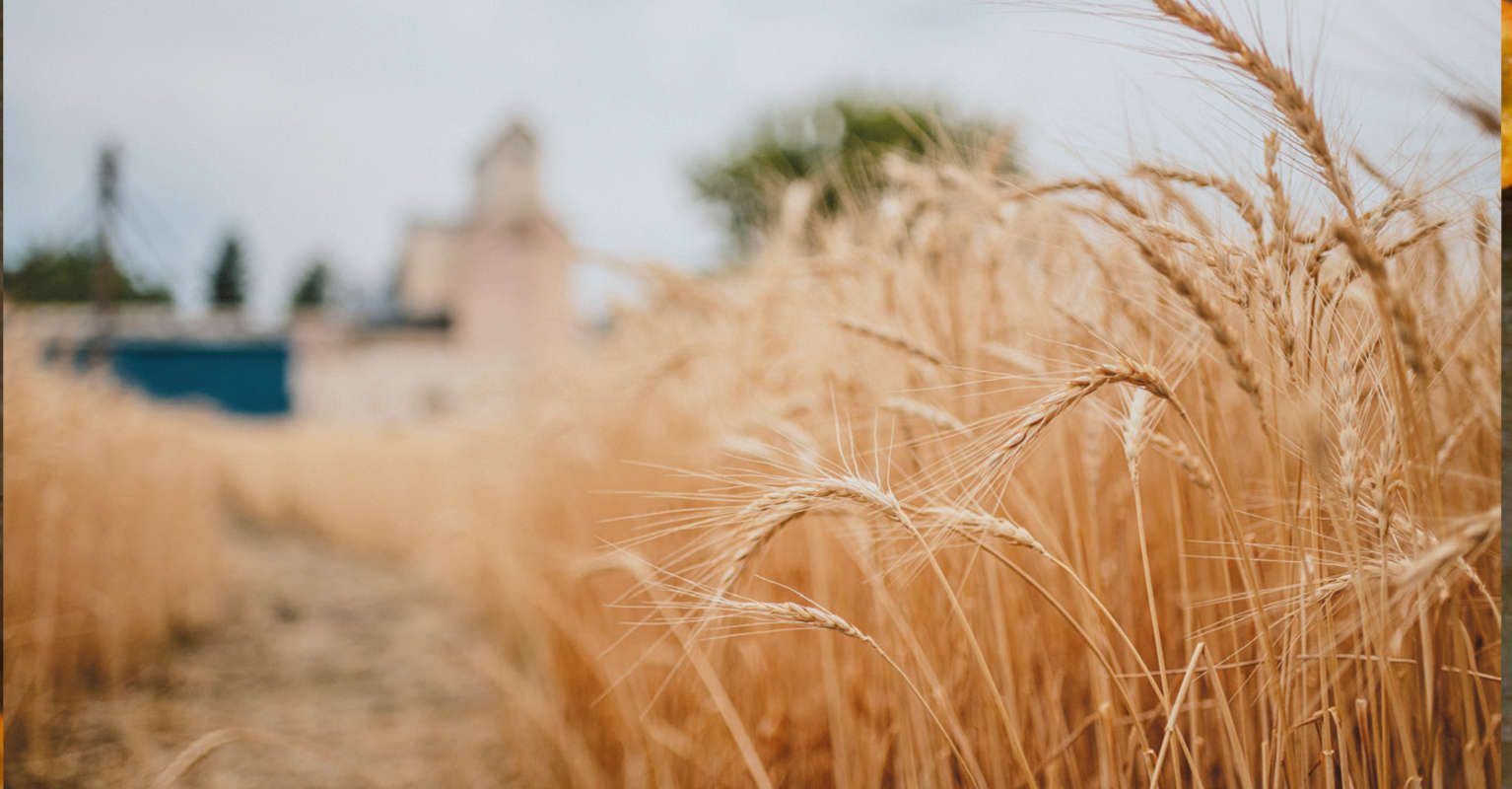Agroecology activist and farmer Sadie Collins operates Highland Harmony Farm in Wilsall, where she and her parents are restoring the land and building community
Led by father-daughter farmers John Bays and Sadie Collins, Highland Harmony Farm rests in the Shields Valley north of the Bridgers, about 45 minutes from Bozeman. The family grows climate-smart ancient grains, legumes, barley, wheat, oats, flowers, and honey. All 1,700 acres are currently farmed with regenerative, soil-health focused, and climate-smart practices, and Bays and Collins are aiming for nearly a quarter of the farm to become certified organic regenerative.
It’s a lot to undertake in the harsh high dry climate of Montana. But Collins and Bays seem up to the challenge.
In fact, in addition to working and transforming their own farm, Collins has taken on the mission of becoming an advocate for the regenerative agroecology movement. She knows “it takes a trailblazer who is willing to risk everything in each new environment or animal or crop. You can study and look back, but ultimately, you just have to do it.” And Collins and Bays are leading by example as they continue to transition their farm with regenerative agriculture.
“Farmers and ranchers are working their asses off in the current system,” Collins says. “And it’s just getting harder and harder to stay afloat in this industrialized system and make a profit.”
As the child of farmers John and Vanessa Bays, Collins grew up in Park County with her hands in the dirt. She learned early on that if a farm has healthy soil, there would be healthy plants, and if there are healthy plants, then there is good food.
“My dad has always been into soil conservation,” she says, adding that she first learned about the concept when she was about 10 years old. So when Collins was old enough to seriously join the operation, she dove in eagerly.
“Dad was Sherlock and I was Watson, which has allowed us to do a lot of great things,” she says. Being flexible, willing to try new things, and remaining open to learning—these are the core practices that have enabled Bays and Collins to grow and evolve their farm and remain independent in an industry that is primarily made up of industrial and conventional farms.
While they are committed to this open mind-set, the challenges are many. Collins and her parents spend a lot of time and energy at farmers markets, reminding themselves and their customers that “the things we grow are not commodities. They are food,” Bays says.
Representative of the family’s ethos, the farm’s name, Highland Harmony, refers to the high, difficult growing area while reflecting their desire to live in harmony with the land. Bays and Collins want to grow nutrient-dense local food and have an abundant life—and share it with their community.
“We believe in education and food, and we are generous with both,” Bays says.
Over the years, the family has implemented regenerative practices as they’ve learned them. “The changeover has been gradual,” Collins says. “About five or six years ago we got a no-till drill—right before COVID. That same spring we also got a high tunnel. We were just sick of doing things the way we were doing them: high-stress conventional farming. We had started hearing about biology-focused farming, and we were all pretty interested in that.”
“My dad has always been a trailblazer,” Collins adds. Bays was a founding member of the Montana Pea and Lentil Growers Association, which morphed into the movement that inspired the book The Lentil Underground. So, when an opportunity arose for Collins to join agroecology activist and educator Nicole Masters in her CREATE Coaching Program with Integrity Soils, Collins jumped at the chance and was warmly encouraged by her parents.
After a 34-week intensive study program with Masters, Collins is launching Phoenix Rising Soils under the umbrella of Highland Harmony Farm to help other grain farmers discover the benefits of regenerative ag. “You don’t have to pay for fungicides if you have healthy soil,” Collins says, describing just one of the many aha! moments she’d like to share with others.
“Farming can be a very solitary life,” she adds. “It’s not like ranching or raising livestock in that we don’t have events like brandings and sortings to bring together community.” So another part of Collins’s mission has become emphasizing the importance of community. She does this not only through farmers markets, but also with farm dinners and has partnered with chef Emily Hahn from Mountain Provisions to offer experiential meals where people can visit the farm and see how food is grown.
“The whole reason we do farmers markets and farm dinners is to be able to tell people what we are doing—to create community, to help encourage a shift in agriculture and bring people onto the farm and create transparency to the process,” Collins says.
“There’s no rule book for us to follow,” she adds. “There are things to try, but no tried-and-true methods for this environment. We’re at the end of the line operating in a short-season high desert.” But she is convinced that together, farmers can create a new and productive approach.
For more information visit phoenixrisingsoils.com.

AN EXPERIENCE: DINNER ON THE FARM
This is the second year Collins and her parents, John and Vanessa Bays of Highland Harmony Farm, opened their family cabin to host a dinner with chef Emily Hahn from Mountain Provisions in Bozeman.
Hahn loves farm dinners and organizes them because, as she says, “It’s an exciting time in Gallatin Valley.” Customers want to know where their food comes from, and farmers want to know their customers. Chefs are uniquely positioned to create real community through these dinners.
“I do this because I love it,” she says.
“It’s one thing to buy a jar of honey at the farmers market,” says Cathy Creager, who attended Hahn’s dinner at Highland Harmony last year. “But to have a chef make a tempura squash blossom on a bed of summer beans with whipped goat cheese and farro—I’m not going to make that at home. That’s way beyond my skills. That’s pretty special.”
In addition to dinner at Highland Harmony, Hahn has local dinners scheduled this summer at North Bridger Bison, Amaltheia Organic Dairy, Shields Valley Ranchers, and Chance Farm. Look also to Gallatin Valley Botanical, Bodhi Farms, and Hardscrabble Ranch for dinners hosted by local and visiting chefs.
To find out more about upcoming farm dinners, check out the Mountain Provisions schedule at mountainprovisionsmt.com.

RELATED RECIPE
Aunt Diane’s Drop Biscuits
These biscuits are a staple in Sadie Collins’s house. Co-owner of Highland Harmony Farm with her father, John Bays, Collins is committed to regenerative practices and loves using her own flour for this recipe that originally came from her husband’s aunt. The best flours for a good rise are pastry, bread, and Montana all-purpose flours, and these make great burger buns or holiday rolls.




